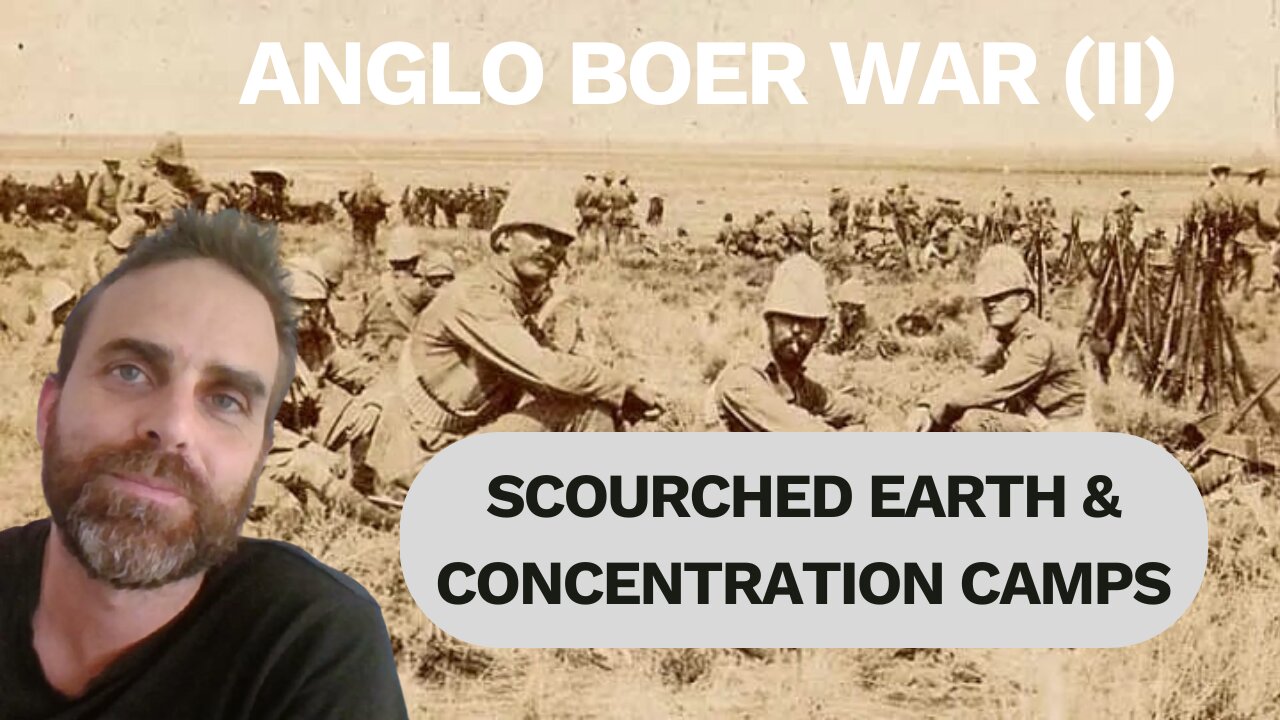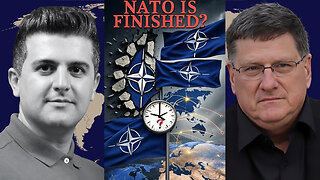Premium Only Content

The Anglo-Boer War: Inevitable Extremes? | Concentration Camps & Scorched Earth
The second Anglo-Boer War (1899–1902) was one of the conflicts in South African history, pitting the British Empire against the two Boer republics. It was a war driven by economic interests, and conflicting ideas of governance. Yet, beyond the political and economic factors, the war was also a tragic clash between two groups with shared Christian heritage.
The Causes of the Anglo-Boer War
The war was largely sparked by British desire to control the gold mines of the Transvaal. The discovery of gold in Witwatersrand in 1886 brought an influx of British immigrants, known as "Uitlanders," who were denied political rights by the Boer government. Britain, under the leadership of figures like Joseph Chamberlain and Lord Milner, saw this as a reason to intervene.
Additionally, tensions had been mounting due to previous conflicts, such as the First Anglo-Boer War (1880–1881), which had resulted in a humiliating British defeat. Britain sought to reassert control over the region, while the Boers fiercely defended their independence. The situation escalated, and in October 1899, war broke out.
A War of Attrition and Destruction
Initially, the Boers had the advantage, using guerrilla tactics to inflict heavy losses on British forces. However, as the war dragged on, the British adapted by deploying more troops and implementing harsh countermeasures. One of the most infamous strategies employed by the British was the Scorched Earth Policy. Farms and homesteads belonging to Boer civilians were burned to the ground, leaving families destitute and unable to support the Boer commandos.
To further weaken Boer resistance, the British established concentration camps, where Boer women and children were detained. The most notorious of these camps was in Pretoria, where thousands were held under dire conditions. In total, over 26,000 Boer women and children died in these camps due to disease, malnutrition, and inadequate medical care.
The Unavoidable Escalation
When two evenly matched forces engage in prolonged warfare without a decisive victory, history shows that one side will resort to extreme measures. The British, with their vast resources, were determined to end the conflict, and their brutal tactics ultimately broke the Boer resistance. This is not an uncommon pattern in warfare—similar tactics were seen in the American Civil War and other prolonged conflicts such as World War II where a clear resolution seemed impossible.
A Lesson to Be Learned
The Anglo-Boer War serves as a sobering reminder of what happens when two determined and equal forces fight. While the war may have been inevitable under the circumstances, it was also a war that should never have taken place—one where the British and Boers could have recognized their shared values and sought a different path. That being Federalism.
-
 LIVE
LIVE
LFA TV
2 hours agoLFA TV ALL DAY STREAM - FRIDAY 8/29/25
12,252 watching -
 LIVE
LIVE
Matt Kohrs
7 hours agoMarket Open Chaos: PCE Inflation Report & Payday Friday || Live Trading
433 watching -
 1:15:29
1:15:29
JULIE GREEN MINISTRIES
2 hours agoLIVE WITH JULIE
29.2K76 -
 13:31
13:31
Adam Does Movies
19 hours ago $3.51 earnedAlien: Earth Episode 4 - Recrap
53.1K4 -
 9:02
9:02
Millionaire Mentor
17 hours agoCNN Host Left SPEECHLESS After Stephen Miller SHREDS Her Narrative
7.35K17 -
 LIVE
LIVE
BEK TV
23 hours agoTrent Loos in the Morning - 8/29/2025
327 watching -
 LIVE
LIVE
Times Now World
3 hours agoLIVE News | “Diplomacy of Cannons Is Over” – Maduro Challenges Washington | Times Now World
1,340 watching -
 1:09:09
1:09:09
Dialogue works
1 day ago $0.76 earnedScott Ritter: NATO is FINISHED
6.42K6 -
 LIVE
LIVE
FyrBorne
12 hours ago🔴Warzone M&K Sniping: I Can Be Your Idol (For Sniping)
166 watching -
 LIVE
LIVE
The Real Tombliboos - Live Streaming
5 hours ago $0.17 earned🔴CHARITY DRIVE🔴12 HOURS🔴Extra Life Charity🔴#ExtraLife #extralife4kids - Round 1
66 watching